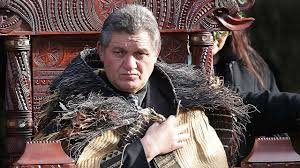New Zealand’s Māori King Dies After 18-Year Reign
Overview of the News
On [Date], New Zealand’s Māori King, Tuheitia Paki, passed away after an 18-year reign. His death marks a significant moment in the Māori community, as he was a prominent figure in the promotion and preservation of Māori culture and traditions. Tuheitia Paki, who became king in 2006, was the seventh Māori King, succeeding his mother, Dame Te Atairangikaahu. His leadership was characterized by efforts to strengthen Māori unity and advocate for indigenous rights within New Zealand.
Legacy of Leadership
Tuheitia Paki’s reign saw considerable efforts to address issues facing the Māori community, including economic development, education, and social welfare. Under his leadership, the Māori King Movement focused on increasing political influence and ensuring that Māori voices were heard in national discussions. His reign was also marked by significant cultural events, including the revitalization of traditional ceremonies and language.
Impact on Māori Society
The Māori King Movement, also known as the Kīngitanga, was established in the 19th century as a response to colonial pressures and aims to unite Māori tribes. Tuheitia Paki’s reign continued this legacy by fostering a sense of identity and pride among Māori people. His leadership not only celebrated Māori heritage but also worked towards the integration of Māori perspectives in national policies.

Why This News is Important
Cultural Significance
The death of Tuheitia Paki represents a profound loss for New Zealand’s Māori community. As a cultural leader, he was instrumental in preserving and promoting Māori traditions and values. His passing signifies the end of an era for the Kīngitanga movement, which has played a crucial role in Māori identity and unity.
Political Impact
During his reign, Tuheitia Paki worked to strengthen the political representation of Māori people. His efforts in advocating for Māori rights and integrating Māori perspectives into national dialogue were significant. His death could lead to shifts in political dynamics and the future direction of Māori advocacy in New Zealand.
Transition of Leadership
The transition of the Māori Kingship will be closely observed, as it will determine the future trajectory of the Kīngitanga movement. The selection of a new king will be pivotal in continuing the legacy of Tuheitia Paki and addressing the ongoing needs and aspirations of the Māori people.
Historical Context
Establishment of the Kīngitanga Movement
The Kīngitanga movement was founded in 1858 to unify Māori tribes and resist colonial encroachment. The movement was established as a response to the growing influence of the British Crown and aimed to provide a unified Māori leadership structure. The first Māori King, Potatau Te Wherowhero, was appointed in 1858, setting the stage for a succession of Māori monarchs.
The Role of Māori Kings
Over the years, Māori kings have played a critical role in preserving Māori culture and advocating for the rights of indigenous people. Each monarch has contributed to the movement’s goals, balancing traditional values with contemporary challenges. Tuheitia Paki’s reign was marked by efforts to modernize the Kīngitanga while maintaining its traditional essence.
Key Takeaways from New Zealand’s Māori King Dies After 18-Year Reign
| Serial Number | Key Takeaway |
|---|---|
| 1 | Tuheitia Paki, the Māori King, has passed away after an 18-year reign. |
| 2 | His leadership focused on strengthening Māori unity and advocating for indigenous rights. |
| 3 | The Māori King Movement, established in 1858, has played a key role in preserving Māori culture. |
| 4 | Tuheitia Paki’s reign was marked by efforts to integrate Māori perspectives into national policies. |
| 5 | The transition to a new Māori King will be crucial for the future direction of the Kīngitanga movement. |
Important FAQs for Students from this News
What was the length of Tuheitia Paki’s reign as Māori King?
Tuheitia Paki reigned as the Māori King for 18 years, having ascended to the throne in 2006.
What were Tuheitia Paki’s major contributions during his reign?
Tuheitia Paki focused on strengthening Māori unity, advocating for Māori rights, and promoting Māori culture and traditions. He also worked on integrating Māori perspectives into national policies and revitalizing traditional ceremonies.
What is the Kīngitanga movement?
The Kīngitanga movement is a Māori political and cultural movement established in 1858 to unify Māori tribes and resist colonial pressures. It provides a traditional leadership structure for the Māori people.
How is the successor to the Māori King chosen?
The successor to the Māori King is selected through a traditional process involving the Māori royal family and the Kīngitanga council. The selection process ensures the chosen individual upholds the values and responsibilities of the role.
What impact might Tuheitia Paki’s death have on New Zealand’s Māori community?
Tuheitia Paki’s death may lead to shifts in the political and cultural landscape of the Māori community. The selection of a new Māori King will be crucial in continuing the Kīngitanga movement’s legacy and addressing contemporary challenges faced by Māori people.
Some Important Current Affairs Links


















